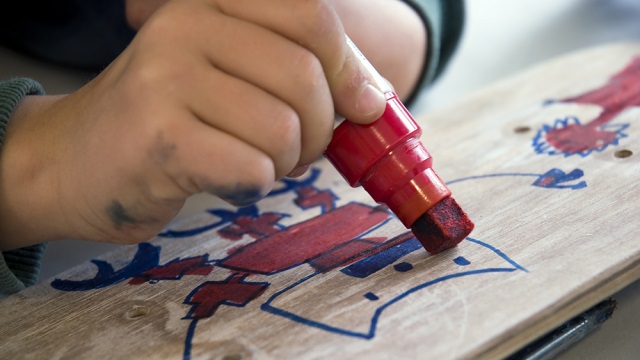Children Need to Learn From Successful Failures

The one thing that’s certain about the world and is that our children will be challenged, and challenge severely. Often I’ll ask an audience of 500 to a thousand people how many of you have not had a death, a divorce, a huge loss, a financial reverse?
The largest number I’ve ever seen is about two percent. That’s life. That’s what happens to people. So how do you get through those times? Well one of it is by being resourceful. That means knowing how to use what’s available to you in order to help you get through a difficult time. I think kids are having a very hard time cultivating resourcefulness because the adults around them are so anxious to step in and solve the problem.
For instance, at a very prestigious school, the dean of freshman tells me this story of a young girl. It’s early in the semester, she forgets where her next class is.
She’s got her schedule in the backpack on the back but instead she reaches into her pocket, pulls out the phone and talks to her mother 16 time zones away in Asia. Now by itself this is not the end of the world. But every time you step in and provide the answer to your kids, that’s external motivation. That’s extrinsic helping.
You deprived the child of the opportunity to go inside herself and figure it out. So a really common thing is the kid who leaves the homework on table. Right? It sitting there and mom is going nuts. “I know it’s an important history project. I’m on my way out. I’m just going to pass the school. Really shouldn’t I drop it off? Probably not.” The reason why not is in terms of resourcefulness there are two things to be learned from that small, successful failure. And by successful failure I mean a failure that your child can actually learn from and develop from.
So if you don’t bring it up he’s got to figure out next time the logistics of not forgetting his homework. Maybe puts it in his backpack, maybe he puts it in the door. But what is equally important is he has to learn how to manage the unhappiness and how upset he feels when he realizes he’s left it. And mom’s right. He will be upset, but that’s okay. Parents will often say to me, “I can’t stand to see my child unhappy.” And my response is, “If you can’t stand to see your child unhappy, you’re in the wrong business.” Because part of raising a child has to do with letting them experience unhappy, what we call dysphonic feelings, and finding out that they can recover.
So if you bring it up, none of those lessons will be learned. You don’t bring it up and they learn logistics. That’s how you develop resourcefulness in kids. You create a little necessity in their lives. And we don’t like to do that but we really need to.
In Their Own Words is recorded in Big Think’s studio.
Image courtesy of Shutterstock





